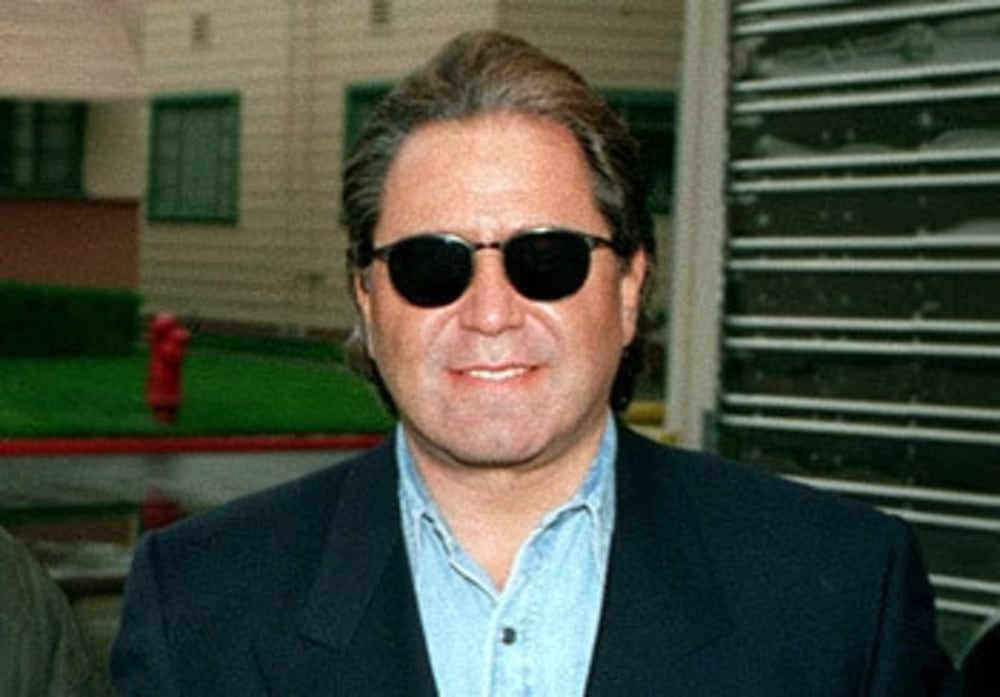Don Simpson: When too much is never enough

Los Angeles Times article by Chuck Philips on Don Simpson’s relentless appetite for drugs
It was no secret in Hollywood that producer Don Simpson had a drug problem. But the depth of his addiction was not revealed until the night he died.
On January 19, 1996, police discovered more than 2,200 pills and tablets stockpiled in alphabetical order in a bedroom closet next to the bathroom where Simpson’s body was found.
Those drugs, however, represented only a fraction of the 15,000 sedatives, amphetamines, tranquilizers, antipsychotics, narcotics and other medications provided to Simpson over the last three years by a network of 15 local doctors and eight pharmacies. And those are just the medications that authorities have tracked so far.
A review of Simpson’s prescription records, obtained by The Times, illustrates just how easy it is for a wealthy addict to accumulate a substantial inventory of dangerous pharmaceuticals.
By visiting multiple doctors and pharmacies, Simpson was able to conceal the vast quantity and array of drugs prescribed to him, as well as the frequency with which he procured them. In many cases, the famous 52-year-old producer also masked his identity by having prescriptions illegally written for him under a pseudonym.
Simpson had no difficulty getting such dangerous and addictive narcotics as morphine sulfate and Percodan, which require federally regulated triplicate prescriptions. (When a triplicate is issued, a copy goes to the doctor, the pharmacy and the state agency that monitors controlled substances.) Simpson also had acquired a significant stash of Dexedrine, Seconal, Xanax, lithium and other controlled substances.
More than two dozen doctors are under investigation by local, state and federal authorities on suspicion of prescribing large amounts of drugs to Simpson in recent years. It is unclear how many of them were aware of his problem or were simply duped by an addict adept at making use of his money and celebrity.
On Friday, authorities armed with warrants raided the offices of two Westside psychiatrists - Robert Hugh Gerner and Nomi J. Fredrick - in connection with the probe. Fredrick’s home also was searched.
Gerner, who treated Simpson in 1993 and 1994, is on probation for overprescribing controlled substances to another patient with whom he had sex, according to the California Medical Board.
Fredrick, according to records obtained by The Times, dispensed large amounts of addictive drugs to Simpson and other wealthy Los Angeles residents, including oil heiress Aileen Getty, who obtained more than 4,000 pills from Fredrick over the last year.
Many of the drugs at the heart of the probe were prescribed last summer while Simpson was undergoing detoxification at his home by friend Stephen Ammerman, a Pacific Palisades physician with a long history of substance abuse.
Ammerman believed that, for Simpson to become clean, it was necessary to prescribe drugs that would ease the painful withdrawal symptoms of other medications that he was taking–a “dangerously unorthodox” regimen, according to a government pharmacist interviewed for this article.
That program ended in August 1995, when Ammerman was found dead in the shower of a pool house on Simpson’s property. An autopsy revealed that the 44-year-old doctor had died of an overdose of drugs, including Valium, cocaine and about four times the lethal limit of morphine.
Even with the death of his friend, Simpson continued on his own hellbent descent, his behavior becoming increasingly more erratic and pathetic, according to associates.
For years, as he climbed to the top of the entertainment industry, Simpson had become notorious for his edgy and hard-charging personality–traits heightened by his well-known affection for drugs.
Dedicated and demanding, he often worked out of his home, conducting all-night brainstorming sessions in which he badgered writers into overhauling scripts until they met his specifications.
His uneven temperament inspired fear in underlings and awe among some of the biggest names in Hollywood as he and his partner, Jerry Bruckheimer, rolled out a multibillion-dollar string of movie blockbusters, from “Top Gun” to “Beverly Hills Cop.”
But after a series of career disappointments in the early 1990s, Simpson began to avoid business associates and binge heavily on prescription drugs and junk food, sources say.
Despite a comeback last spring with “Crimson Tide” and “Dangerous Minds,” the producer’s weight had ballooned 50 pounds and he was succumbing to serious addiction. Associates say he became reclusive, rarely leaving his mansion even to visit the sets of his movies.
In fact, sources say that while his and Bruckheimer’s names top the credits of the current release “The Rock,” Simpson’s involvement was minimal because of his worsening condition.
Simpson’s drug problems long had been a source of friction with Bruckheimer. Ammerman’s death, however, proved to be the last straw, sources say. Bruckheimer pulled the plug on their partnership last fall.
By then, Simpson was so far gone that not even the breakup of one of the industry’s most successful producing duos could bring him back, although he tried.
In September, he traveled to Hawaii with psychiatrist Fredrick in an attempt to dry out, but he came back worse, sources say. The next month, he checked into St. John’s Hospital and Health Center in Santa Monica for drug-related psychiatric treatment. He fled the facility without notifying anyone.
Throughout this period, and despite his obvious deterioration, several doctors continued to write Simpson prescriptions for controlled substances until Jan. 12–one week before he died.
The coroner’s toxicology report revealed that Simpson died from an overdose of 21 drugs, including cocaine and a broad spectrum of stimulants, antidepressants, sedatives and tranquilizers.
“This case is a classic example of why they call these things dangerous drugs,” said Steve Simmons, the California Medical Board senior investigator involved in the Simpson probe. “Everybody understands how lethal street drugs like heroin are, but it takes a prescription overdose by someone famous like Don Simpson to drive home the fact that pharmaceutical medications are just as deadly.